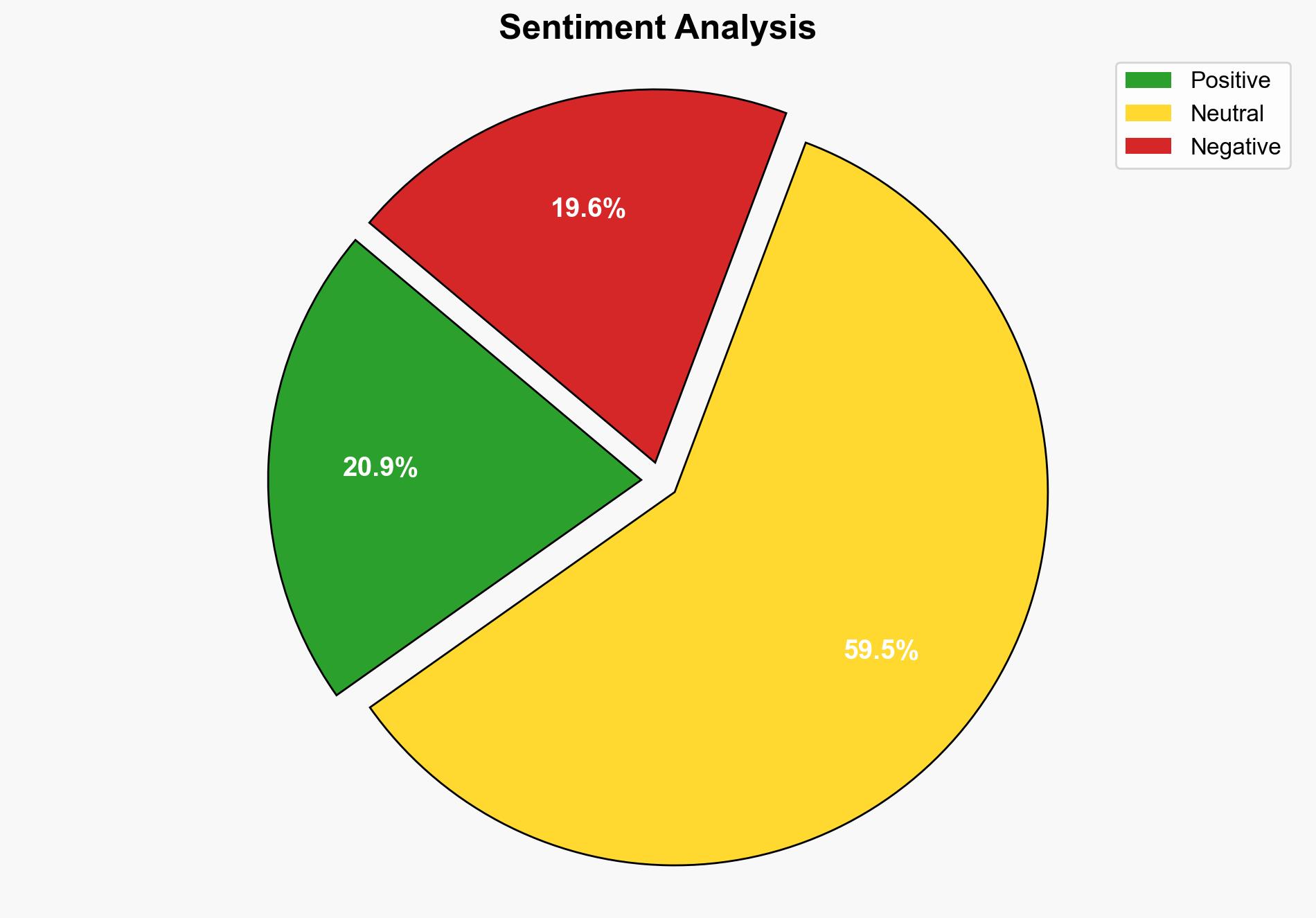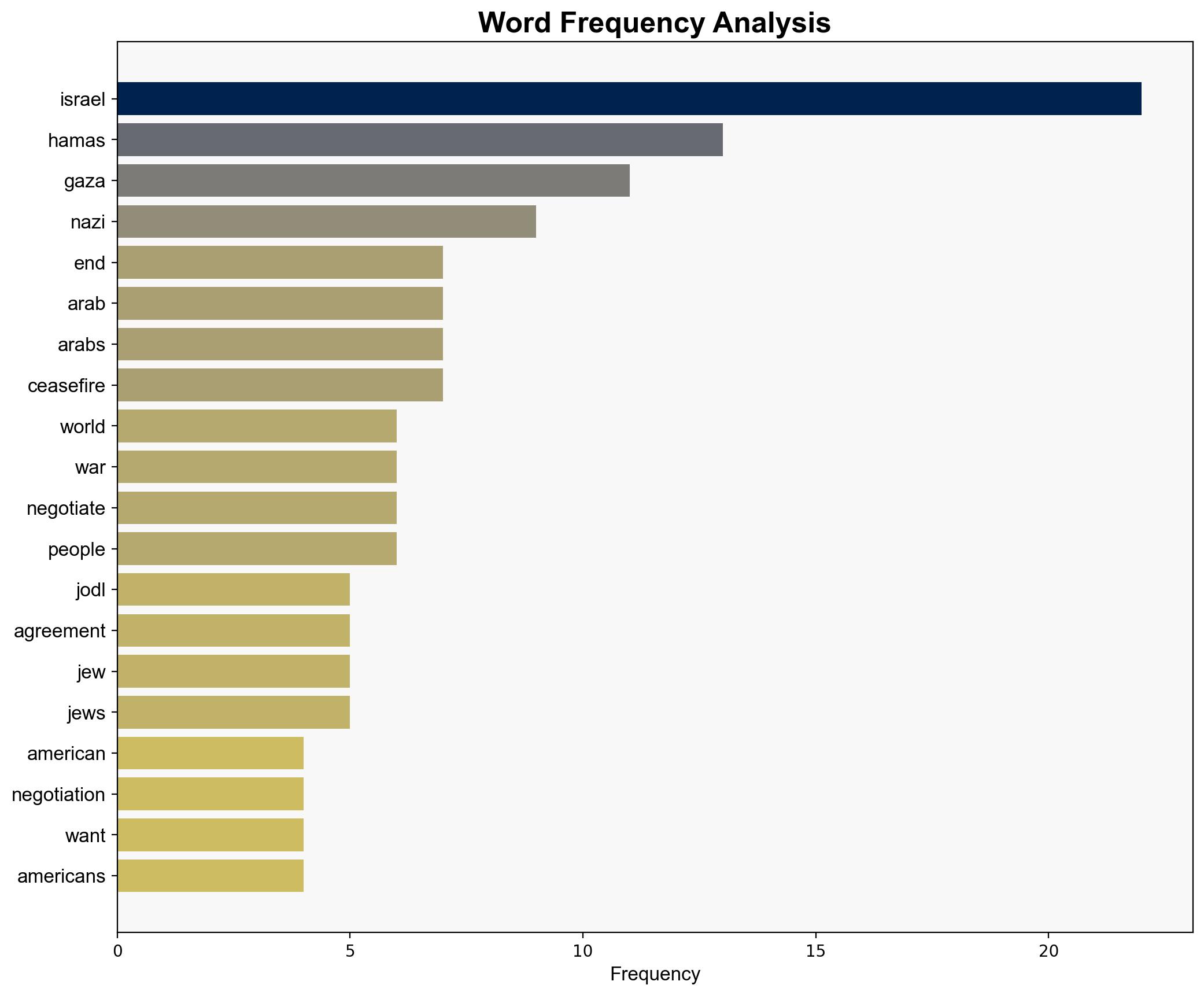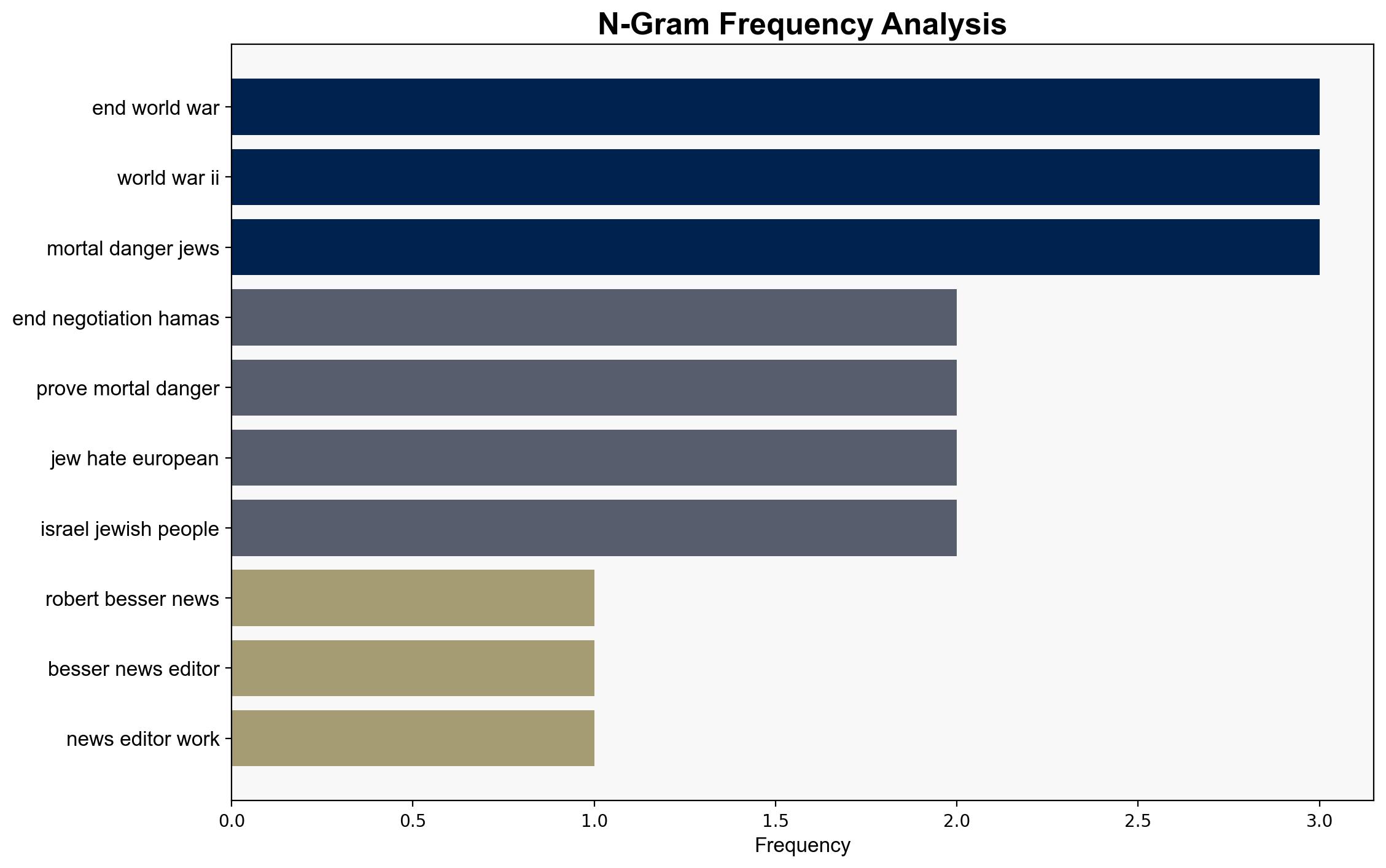Israel must stop all negotiations with Hamas by learning from America – Israelnationalnews.com
Published on: 2025-11-10
Intelligence Report: Israel must stop all negotiations with Hamas by learning from America – Israelnationalnews.com
1. BLUF (Bottom Line Up Front)
The strategic judgment suggests a high confidence level in the hypothesis that Israel should cease negotiations with Hamas, learning from historical precedents like the Allies’ approach to Nazi Germany. The recommended action is to adopt a more uncompromising stance against Hamas, focusing on military and strategic dominance rather than diplomatic engagement.
2. Competing Hypotheses
1. **Hypothesis A**: Israel should cease all negotiations with Hamas, adopting a strategy similar to the Allies’ unconditional surrender demand from Nazi Germany. This approach would focus on military dominance and strategic control to ensure long-term security.
2. **Hypothesis B**: Continued negotiations with Hamas are necessary to maintain regional stability and avoid prolonged conflict. Diplomatic engagement, despite its challenges, could lead to incremental improvements in security and humanitarian conditions.
Using ACH 2.0, Hypothesis A is better supported due to historical parallels and the perceived ineffectiveness of past negotiations with Hamas, which have often been violated.
3. Key Assumptions and Red Flags
– **Assumptions**: Hypothesis A assumes that Hamas will never honor agreements and that military action will not provoke further escalation. Hypothesis B assumes that Hamas can be a rational actor in negotiations and that diplomatic efforts can yield positive outcomes.
– **Red Flags**: The narrative heavily relies on historical analogies, which may not fully apply to the current geopolitical context. There is also a lack of consideration for potential international backlash or humanitarian consequences.
– **Blind Spots**: The analysis does not account for the potential role of other regional actors or the impact of global public opinion on Israel’s actions.
4. Implications and Strategic Risks
– **Patterns**: Historical patterns suggest that uncompromising military strategies can lead to short-term gains but may also result in long-term instability.
– **Cascading Threats**: A hardline approach could escalate into broader regional conflict, drawing in other state and non-state actors.
– **Economic and Cyber Risks**: Increased military action could lead to economic sanctions or cyber retaliation from Hamas or its allies.
– **Geopolitical and Psychological Dimensions**: Israel’s international standing could be affected, and the psychological impact on both Israeli and Palestinian populations could exacerbate tensions.
5. Recommendations and Outlook
- **Mitigate Risks**: Strengthen defensive capabilities and intelligence operations to preempt potential retaliatory actions by Hamas.
- **Exploit Opportunities**: Leverage international diplomatic channels to build a coalition supporting Israel’s stance, emphasizing the need for security and stability.
- **Scenario-Based Projections**:
- **Best Case**: Israel successfully neutralizes Hamas’s military capabilities, leading to a more stable security environment.
- **Worst Case**: Escalation leads to a broader regional conflict, drawing in other actors and resulting in significant casualties and economic damage.
- **Most Likely**: A protracted conflict with intermittent ceasefires and ongoing tensions, requiring sustained military and diplomatic efforts.
6. Key Individuals and Entities
– General Dwight Eisenhower (historical reference)
– Alfred Jodl (historical reference)
– Hamas (entity)
– Israel (entity)
7. Thematic Tags
national security threats, counter-terrorism, regional focus





